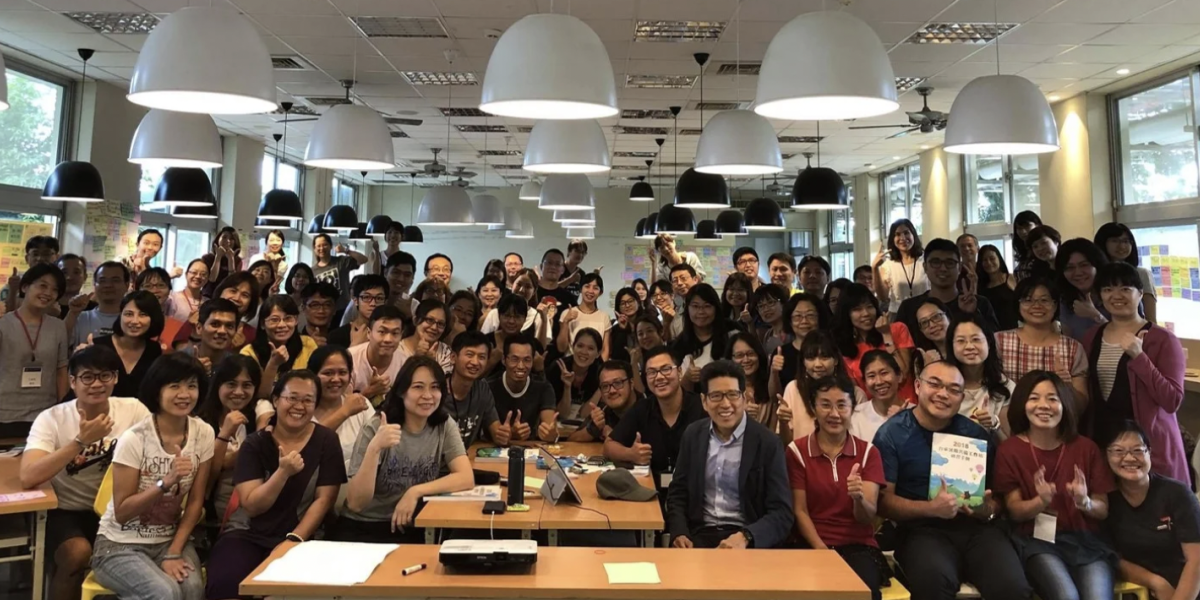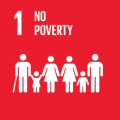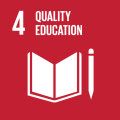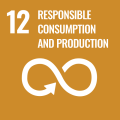One Teacher’s Path to Changing Taiwan’s Education
2018 has been a year of dramatic change in Taiwan's education scene. It is the year Teacher Weiyin Lan resigned from her curriculum consulting position at the Ministry of Education and her teaching position at the Lishan Senior High School. She announced her commitment to coaching and mentoring schools and educators. Lan recognizes the urgency of an education revolution in the current education climate and sees teachers and parents as vital forces for change. Lan takes a practical approach to empowerment and aims to nurture professional education consultants. She turns theory into practice and builds a network of partners to help mentor schools and educators.

Lan customizes her approach for each school and its teachers' needs, allowing teachers to take the initiative to assess what is truly lacking. Depending on the school, she constructs systematic curricula and develops tools that can easily be picked up to assist its teachers. In Lan's education revolution journey, she aims to establish a platform that trains professional education consultants to serve schools and educators in need. With visions aligned with ACF, Lan partners with ACF, and fulfills the administrative support, allowing Lan to begin her mentorship journey, where she will eventually accumulate the experience to found her platform.

In 2014, the year that Lan worked at Taipei City Government's Department of Education, Lan persistently grew and promoted its senior high teacher's curriculum development group and its inter-school community. Lan witnessed firsthand how any change in education requires much patience and close mentorship, how each individual involved has one's practice, and how the challenge lies in unification. In addition, trivial matters often turn into complicated ones. She recognized what is needed most is not a memo stating what or how to change but relatively close coaching and mentorship. After leaving the government office, Lan returned to Lishan Senior High School for two years as Academic Director. While there, she continued to promote and help integrate the K-12 Education Administration's newly developed curriculum. Under the Ministry of Education's invitation, she devoted time to consulting its Senior High School Actualization Program each month, where she accumulated much of her practical experience from working with diverse senior high schools. She found that the schools shared similar needs but had different problems.

When Lan announces the dates of her workshops, which tend to take place over the winter and summer holidays, teachers from across the nation quickly sign up. The popularity of the workshops lies in each of the meaningful and fruitful discussions. Participants come from different schools, age groups, and subjects, but they all join for one reason - to help their students learn better. Perhaps it is with such pure and good faith that collaborators will be attracted to work together and welcome Lan's mentorship. Teachers can discuss and form a community during the workshops to co-prep for the curriculum. Together, they rediscover the heart of teaching and the core of being an educator. Through the workshops, teachers experience confusion, conflict, and contradiction but always come to a solution of understanding what they wish to do for the students. The lecture contents of each workshop are free to download, and some are broadcast live on the internet.

In her journey, Lan tries to understand the reasons and obstacles that make teachers resist the new curriculum. Her finding is that teachers are much aware of the problems and challenges faced by the school, however, in the face of change in environment, education policies and curriculum, the uncertainty makes teachers less susceptible to change. Although many books and research on educational theory are referenced, they are not directly applied. Lan often says education theory should offer more than just methods. To transform theory into practice is a matter she cares deeply about. Everyone has their curriculum development theory. She feels that as long as they can inspire students' lifelong curiosity and let learning happen, it should be the right way to continue forward. It is more important to establish a system to solve and change the current situation, let education return to the essence of education, to return to the students, and let the learning return to its original form. Change in education takes time, but through coaching, change takes place. The beginning of change must come from a unified belief and faith in the future of education. In Lan's journey, she will continue to coach teachers, continue the dialogue and reflect on the blind spots through the dialogues, and continue to move towards the ultimate goal – to work together with educators to solve Taiwan's education problem.






